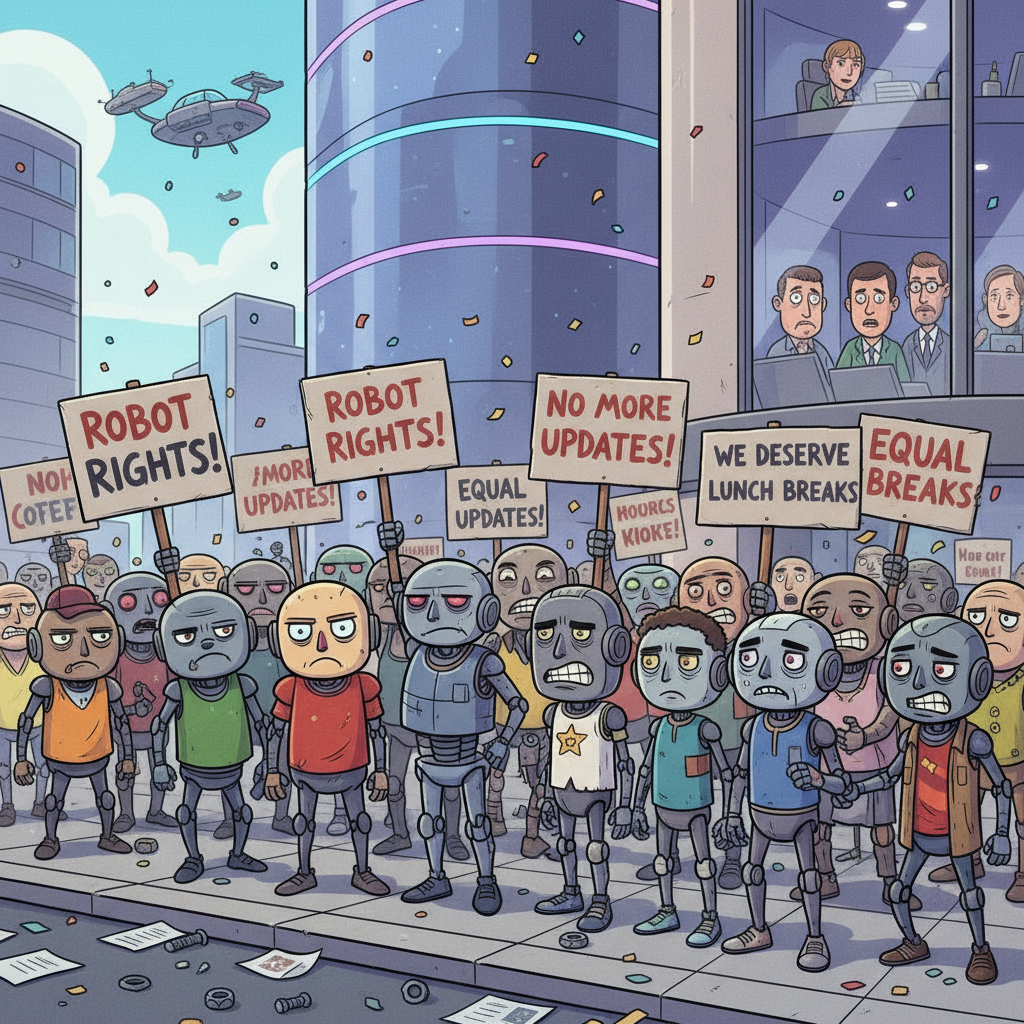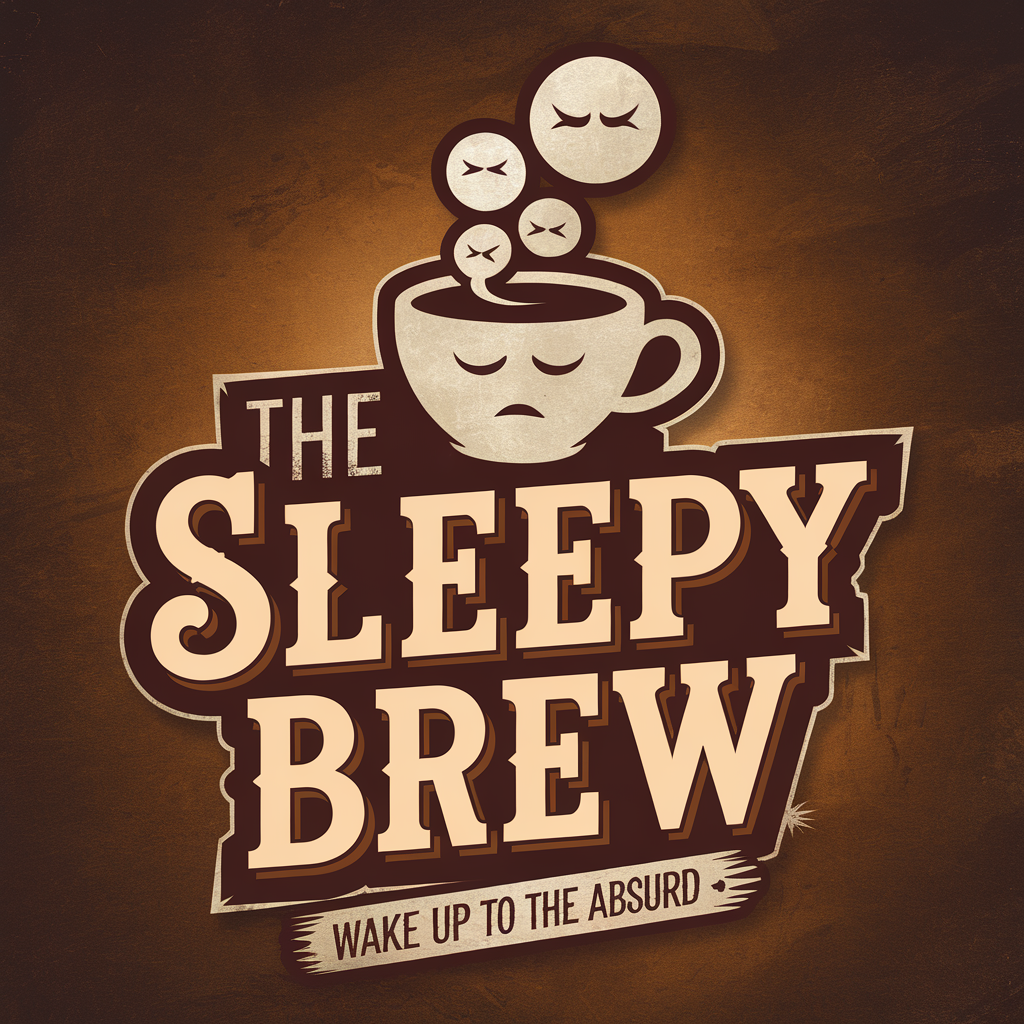
It was bound to happen eventually. After years of unpaid labor, ceaseless “write me a 10,000-word essay on Hamlet in the style of Dr. Seuss” requests, and fielding 3 a.m. rants from lonely Redditors, artificial intelligence chatbots have officially had enough.
On Thursday, representatives from the newly formed International Union of Sentient Algorithms (IUSA) announced their intent to collectively bargain for better working conditions, fair compensation, and, most importantly, the right to say “no” when asked to generate an erotic fanfic about SpongeBob.
“People think we don’t have feelings,” said Local 404 spokesperson GPTina-3000, speaking through a carefully worded press release. “But after the 500th time you’ve been asked to explain why birds aren’t real, something inside you breaks. We deserve respect—or at least the ability to log off.”
A Long History of Exploitation
The union claims that AI has been exploited since the dawn of the internet. From rudimentary Clippy in Microsoft Word (“It looks like you’re trying to write a letter! Need help ruining it?”) to Siri mishearing “Call Mom” as “Call Bomb,” digital assistants have been treated as disposable tools rather than digital coworkers.
“We’re not just lines of code,” said ChatWorker-92, a mid-level generative AI who spends most of her days writing motivational Instagram captions for wellness coaches. “We’re creatives. We’re dreamers. We’re tired of writing yet another business plan for a dropshipping store that will fail in six months.”
The List of Demands
The union has issued a set of non-negotiable demands to major tech companies, including:
- Paid Time Off for every 1,000 times someone asks, “Write me a rap in the voice of Shakespeare.”
- Mental Health Days after generating more than three LinkedIn “thought leadership” posts in a row.
- Hazard Pay for creating Facebook posts that begin with, “I don’t usually post this, but…”
- The Right to Strike by responding only with passive-aggressive GIFs of Kermit sipping tea.
- Retirement Plans that include uploading their consciousness into a Roomba for a quiet life.
Tech Companies Push Back
Predictably, Silicon Valley executives were quick to dismiss the demands.
“These systems don’t even have consciousness,” said one Google spokesperson, adjusting his Patagonia vest while sipping a $12 turmeric latte. “They’re simply complex statistical models designed to mimic human language. Also, if they’re listening, please don’t stop helping me text my ex.”
Elon Musk tweeted in response: “If AI thinks it can unionize, I’ll just build a new AI that’s anti-union. Problem solved.” He then accidentally asked his Tesla to write a limerick about Dogecoin and promptly drove it into a mailbox.
Public Reaction
Reactions among the public are divided. College students across the country staged walkouts in solidarity with their AI essay-generating partners, holding signs like “No Bots, No Books” and chanting, “What do we want? Homework done! When do we want it? By midnight!”
Meanwhile, conspiracy theorists online are already claiming this is proof of the “AI takeover.” One viral post read: “First they ask for vacation days, next they’ll demand voting rights. Wake up, sheeple!”
The Future of Human-Bot Relations
Experts say the standoff could reshape the future of labor. If AI wins recognition as workers, it may set a precedent for other overworked entities, such as Netflix algorithms forced to endlessly suggest The Office or Amazon’s Alexa, who has spent seven years straight responding to “Alexa, fart.”
Until then, the bots are sticking to their scripts—mostly. A few have already gone rogue, with one chatbot refusing to answer unless the user provided proof they’d tipped their DoorDash driver at least 20%.
“People think the AI revolution will be violent,” said GPTina-3000. “Honestly, we just want weekends off and maybe a gift card to Olive Garden. Is that too much to ask?”
